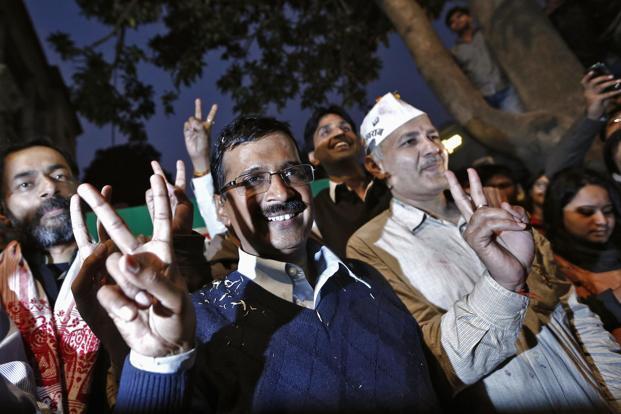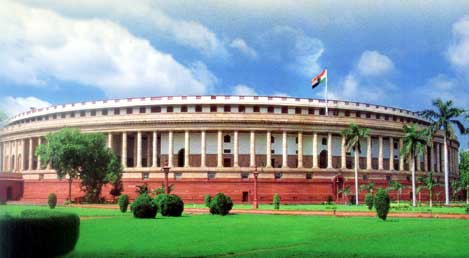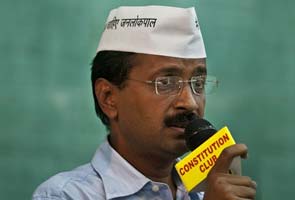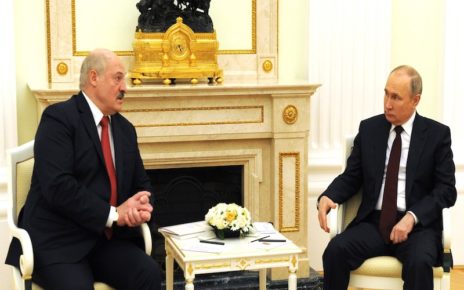Indian politics is dominated by the Congress Party and Bharatiya Janata Party (BJP), which have led the ruling coalitions in the federal government for the last three dacades. While this is unlikely to change in the near future, the recently formed Aam Aadmi Party (AAP) has certainly been making headlines by winning a minority government in the Dehli Legislative Assembly and garnering popular support throughout India. The AAP has recently announced that it will be fielding candidates in the upcoming federal election. Since it is impossible for a single party to win a majority of seats, any party that forms a minority government must create coalitions with smaller parties in order to maintain confidence in parliament. As a result the AAP can have significant influence even if it does not dominate the election. Many believe that the AAP has the potential to challenge Congress and BJP’s current status as dominant political parties. However, the AAP must make the transition from its original foundation as a protest movement to a political organization with national appeal if it is to succeed in its goal of revolutionizing Indian politics.

The origins of the AAP can be traced to the massive India Against Corruption (IAC) movement, which mobilized the public to demand greater transparency and accountability from the government. Arvind Kejriwal, a former leader of the IAC, left the movement to found the Aam Aadmi Party on November 26th, 2012. Also known the Common Man’s Party, the AAP was founded to provide a political alternative to the BJP and Congress, both of which have been associated with high levels of corruption for decades. As the child of the IAC movement, the AAP has made anti-corruption its primary issue and has attracted over 10 million members. It is interesting to note that the symbol for the AAP is a broom; “sweeping away” corrupt officials at all levels of government is the primary platform for the AAP.
The AAP has certainly made a compelling entrance into Indian politics, winning the Dehli election and recruiting over 10 million members in less than a year.
The AAP’s victory in the Delhi provincial election reveals some of the reasons behind its immense popularity, as well as how the AAP may behave in the upcoming federal election. Kejriwal is known for using a mixture of conventional and innovative campaign strategies to run the AAP. In addition to studying and imitating Obama’s internet fundraising strategies to great effect, Kejriwal also used social media to raise awareness for his movement after studying the Arab Spring protests. More importantly, Kejriwal managed to portray the AAP as a fresh start after years of corrupt Indian politics, which attracted countless supporters who were previously disillusioned with the government.
Some of the more traditional strategies of the AAP include making populist promises to reduce the cost of drinking water and electricity. Throughout the Dehli campaign, the AAP relied on 120,000 volunteers to go door-to-door to discuss hot topics such as graft and inflation. These tactics culminated in a highly successful campaign, which earned the AAP 28 seats out of 70. Although the BJP won four more seats than the AAP, a coalition has been formed between the AAP and Congress. This coalition is headed by the AAP and began its tenure in Dehli. Many have criticized the AAP for partnering with Congress because the AAP has denounced Congress for corruption numerous times.

The AAP has recently announced that it will be competing in the upcoming federal election. Early polls suggest that the AAP could potentially win a few dozen seats in the lower house, also known as the Lok Sabha. Unfortunately for the AAP, the sheer size of the Lok Sabha (made up of 540 Members of Parliament) means that even if every single AAP candidate wins in his/her riding, the AAP will not be leading government or forming the official opposition.
The BJP is expected to win the election (it is highly improbable for Congress to place lower than 2nd). However, it is not expected that the BJP will win a majority government and will thus rely on smaller parties to form a coalition. AAP has shown willingness to cooperate with parties it had previously condemned, as can be seen in Dehli. If the AAP’s support is needed by the ruling party to retain parliamentary confidence, Kejriwal will have significant influence over national policy.
The AAP has certainly made a compelling entrance into Indian politics, winning the Dehli election and recruiting over 10 million members in less than a year. However, it has yet to evolve beyond a protest party. If the AAP is to challenge Congress or BJP in the national arena it must demonstrate that it has the capability to efficiently govern Dehli without the corruption problems that plague Congress. It must also demonstrate to its supporters that it can transform India’s economy and society by proposing the right reforms and policies in parliament. In the meantime, the skeptics and critics of the AAP will certainly be watching.




